2017 DI NCAA Indoor ChampionshipsMar 16, 2017 by Taylor Dutch
How A Young Colorado DMR Upset The Collegiate Record-Holders
How A Young Colorado DMR Upset The Collegiate Record-Holders
After beating Stanford and Oregon with a stunning final kick, the Colorado distance medley relay will never be underestimated again.
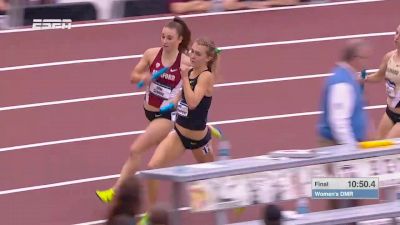
There were two certainties heading into the women's distance medley relay at last weekend's NCAA Indoor Championships.
1. Oregon, the collegiate record-holder, was going to bring it.
2. You wouldn't want to be anywhere near Dani Jones on the last lap of the race.
Two weeks before NCAAs, Colorado coaches Mark Wetmore and Heather Burroughs made a rare decision to run a DMR at the MPSF Championships. For the past 25 years, Wetmore chose to focus on individual performances rather than relays. The last time Colorado scored in the DMR at the NCAA championships was in 1994 when the men's team finished eighth.
With "conservative aspirations" in mind, Wetmore and Burroughs put together a team of two freshmen and two sophomores to compete at MPSF in Seattle. Tabor Scholl, Elissa Mann, Sage Hurta, and Dani Jones completed the young squad, which unleashed a surprising victory over Stanford in an NCAA qualifying time of 10:58.68. The win came down to a come-from-behind kick issued by Jones who split 4:33 on the 1600m to beat Stanford's Elise Cranny.
Suddenly, the conservative aspirations became All-American aspirations.
The Buffaloes ranked seventh in an NCAA field that included the formidable Oregon Ducks, who blasted a solo collegiate record of 10:48.77 in January. The Ducks' time was seven seconds faster than No. 2-ranked Indiana. NCAAs would be just the second DMR of the season for the young Colorado squad.
But on Friday in College Station, Texas, the gun went off and all of the past performances didn't matter. The 1200m leg was run once again by Scholl, who split 3:27 and brought the team within the middle of the chase pack. The 400m was run by Mann, who split 56 seconds before handing off to Hurta. The cross country All-American split an 800m personal best of 2:05 to put Jones 30 meters behind the leaders. Jones spent the majority of the race closing the gap, and by 400 meters to go, she had worked her way into the lead pack. With one lap remaining, Oregon's Katie Rainsberger made a surge to the front with Cranny and Jones in full pursuit.
With 150m remaining, the race was up to Rainsberger, Cranny, and Jones. From the final homestretch, Cranny passed Rainsberger, but in the all-too-familiar kick, Jones flew out into lane three to edge her out at the line. Jones split 4:31 to bring the Colorado squad its first NCAA title in the DMR with a winning time of 11:00:34.
"I know everyone has strengths and weaknesses, but with those two girls there are no weaknesses," Jones said after the race. "It's any given day. I just had to stay smart.
"We were hoping to be top five, so this is a big surprise!"
The team placing was a surprise to many, even Wetmore and Burroughs, but the kick from Jones was no surprise.
"I knew as long as she's there with a lap to go, there's no stopping Dani," Mann said in the post-race interview.
On Saturday, that statement proved true once again when Jones unleashed the same kick to beat NCAA cross country champion Karissa Schweizer in the 3K.
Wetmore and Burroughs' decision to run a Colorado DMR this year was also perfectly timed with two alums' success in the distance. Just two months earlier at the New Balance Indoor Grand Prix, Jenny Simpson and Emma Coburn contributed to the team that broke the distance medley relay indoor world record. Coburn ran as the anchor leg and handed off to teen Olympian Sydney McLaughlin. McLaughlin gave the stick to world bronze medalist Brenda Martinez who then handed off to Simpson. The Olympic bronze medalist brought the team across the finish line in a record time of 10:40.31.
With the surprise success of the Colorado squad and a world record run by two alums, it's safe to say that Wetmore and Burroughs should continue to keep the DMR as a focus for the future.
1. Oregon, the collegiate record-holder, was going to bring it.
2. You wouldn't want to be anywhere near Dani Jones on the last lap of the race.
Two weeks before NCAAs, Colorado coaches Mark Wetmore and Heather Burroughs made a rare decision to run a DMR at the MPSF Championships. For the past 25 years, Wetmore chose to focus on individual performances rather than relays. The last time Colorado scored in the DMR at the NCAA championships was in 1994 when the men's team finished eighth.
With "conservative aspirations" in mind, Wetmore and Burroughs put together a team of two freshmen and two sophomores to compete at MPSF in Seattle. Tabor Scholl, Elissa Mann, Sage Hurta, and Dani Jones completed the young squad, which unleashed a surprising victory over Stanford in an NCAA qualifying time of 10:58.68. The win came down to a come-from-behind kick issued by Jones who split 4:33 on the 1600m to beat Stanford's Elise Cranny.
Suddenly, the conservative aspirations became All-American aspirations.
The Buffaloes ranked seventh in an NCAA field that included the formidable Oregon Ducks, who blasted a solo collegiate record of 10:48.77 in January. The Ducks' time was seven seconds faster than No. 2-ranked Indiana. NCAAs would be just the second DMR of the season for the young Colorado squad.
But on Friday in College Station, Texas, the gun went off and all of the past performances didn't matter. The 1200m leg was run once again by Scholl, who split 3:27 and brought the team within the middle of the chase pack. The 400m was run by Mann, who split 56 seconds before handing off to Hurta. The cross country All-American split an 800m personal best of 2:05 to put Jones 30 meters behind the leaders. Jones spent the majority of the race closing the gap, and by 400 meters to go, she had worked her way into the lead pack. With one lap remaining, Oregon's Katie Rainsberger made a surge to the front with Cranny and Jones in full pursuit.
With 150m remaining, the race was up to Rainsberger, Cranny, and Jones. From the final homestretch, Cranny passed Rainsberger, but in the all-too-familiar kick, Jones flew out into lane three to edge her out at the line. Jones split 4:31 to bring the Colorado squad its first NCAA title in the DMR with a winning time of 11:00:34.
"I know everyone has strengths and weaknesses, but with those two girls there are no weaknesses," Jones said after the race. "It's any given day. I just had to stay smart.
"We were hoping to be top five, so this is a big surprise!"
The team placing was a surprise to many, even Wetmore and Burroughs, but the kick from Jones was no surprise.
"I knew as long as she's there with a lap to go, there's no stopping Dani," Mann said in the post-race interview.
On Saturday, that statement proved true once again when Jones unleashed the same kick to beat NCAA cross country champion Karissa Schweizer in the 3K.
Wetmore and Burroughs' decision to run a Colorado DMR this year was also perfectly timed with two alums' success in the distance. Just two months earlier at the New Balance Indoor Grand Prix, Jenny Simpson and Emma Coburn contributed to the team that broke the distance medley relay indoor world record. Coburn ran as the anchor leg and handed off to teen Olympian Sydney McLaughlin. McLaughlin gave the stick to world bronze medalist Brenda Martinez who then handed off to Simpson. The Olympic bronze medalist brought the team across the finish line in a record time of 10:40.31.
With the surprise success of the Colorado squad and a world record run by two alums, it's safe to say that Wetmore and Burroughs should continue to keep the DMR as a focus for the future.
Related Content
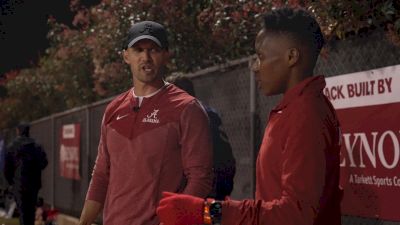 Alabama Distance Mic'd Up at The 2024 Bryan Clay Invitational
Alabama Distance Mic'd Up at The 2024 Bryan Clay InvitationalApr 18, 2024
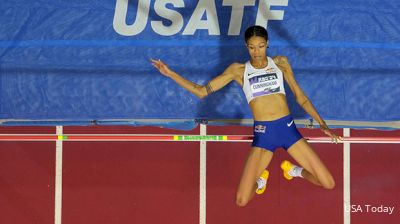 Vashti Cunningham Highlights Olympic Development High Jump Fields At Penn
Vashti Cunningham Highlights Olympic Development High Jump Fields At PennApr 18, 2024
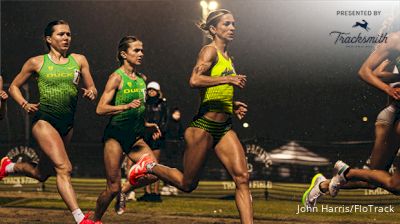 PR Of The Week presented by TrackSmith: Gracie Hyde
PR Of The Week presented by TrackSmith: Gracie HydeApr 17, 2024
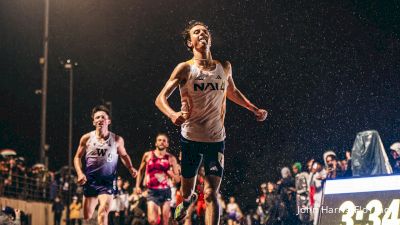 Parker Valby, Colin Sahlman And Gracie Hyde Re-Write History At Bryan Clay
Parker Valby, Colin Sahlman And Gracie Hyde Re-Write History At Bryan ClayApr 15, 2024
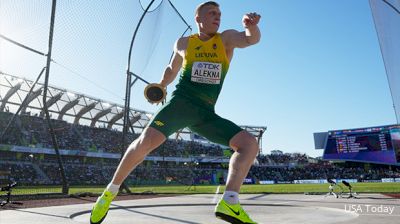 Cal-Berkeley's Mykolas Alekna Breaks Oldest Men's World Record In Discus
Cal-Berkeley's Mykolas Alekna Breaks Oldest Men's World Record In DiscusApr 15, 2024
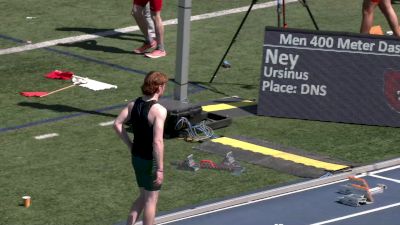 Replay: Bison Outdoor Classic | Apr 14 @ 10 AM
Replay: Bison Outdoor Classic | Apr 14 @ 10 AMApr 14, 2024
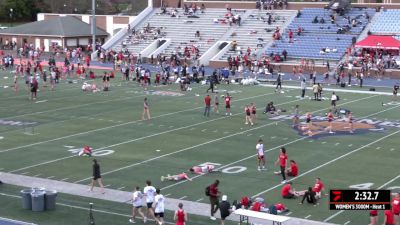 Women's 3k
Women's 3kApr 14, 2024
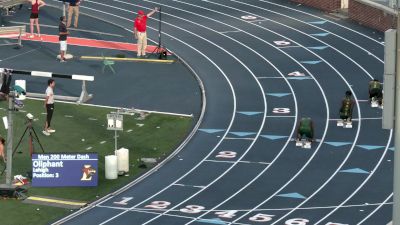 Men's 200m
Men's 200mApr 14, 2024
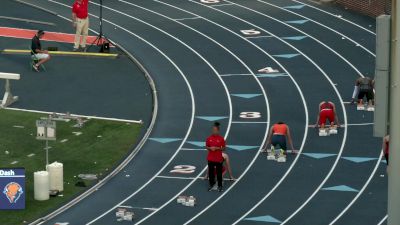 Men's 200m
Men's 200mApr 14, 2024